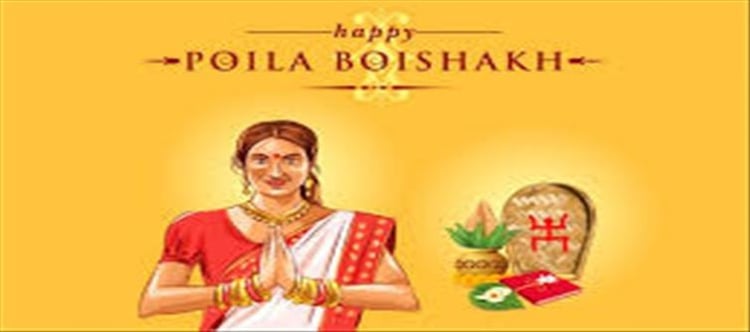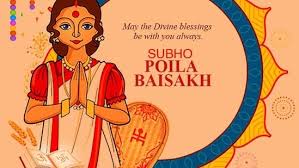
Poila Baisakh : Celebration of bengali New Year!!!

Poila Baisakh, also known as Pohela Boishakh, is one of the most important festivals celebrated by the bengali population. It commemorates the first day of the first month, Baishakh, in the bengali solar calendar and heralds the start of the bengali New Year, Nobo Borso. It is celebrated with considerable pomp in West bengal and Bangladesh, where it is also a national holiday, and it falls on the same dates as other regional festivals in India, such baisakhi in Punjab, Vishu in Kerala, Puthandu in tamil Nadu, and bihu in Assam.
History and Importance: Poila Baisakh is thought to have originated according to a number of theories. It is thought that the Islamic Hijri calendar, which used a lunar calendar that did not align with solar agricultural cycles, was used to collect taxes during the Mughal era.
As a result, Bengalis brought this celebration, and the bengali calendar was dubbed the Bangabda. According to a different interpretation, Bangabda is mentioned in two shiva temples, suggesting that it predates the Akbar era. The bengali calendar is credited to king Shashanka.
Boishakh, also known as Baisakh, marks the start of the bengali calendar. Since it falls during the harvest season, the bengali New Year is called Pohela Boishakh. Drik Panchang claims that king Shoshangko of ancient bengal is credited with establishing the bengali era, which is thought to have begun around 594 AD according to the Gregorian calendar.




 click and follow Indiaherald WhatsApp channel
click and follow Indiaherald WhatsApp channel